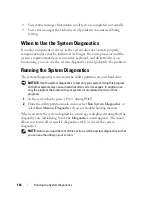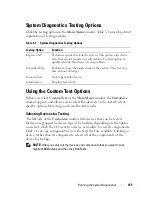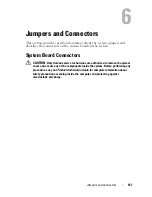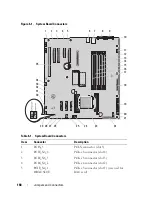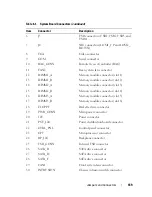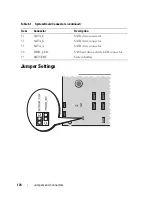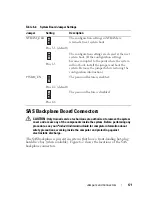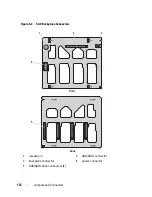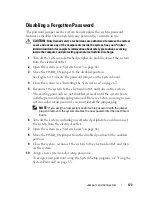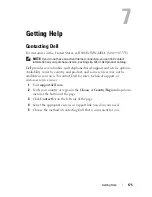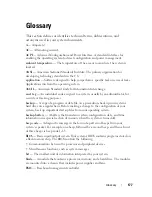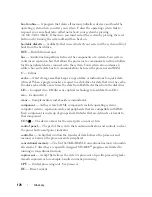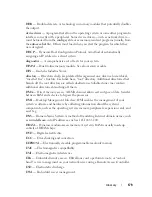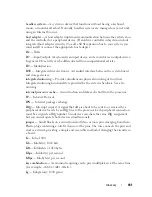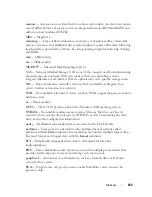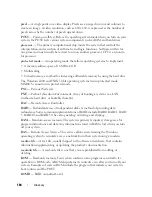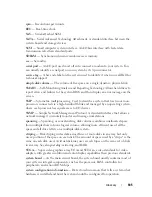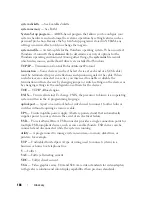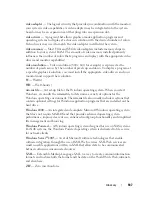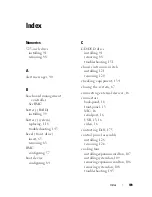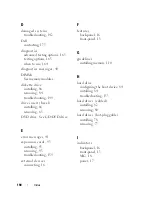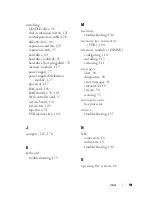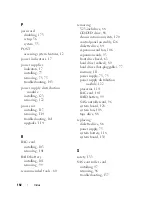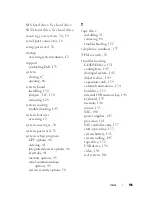
178
Glossary
boot routine
— A program that clears all memory, initializes devices, and loads the
operating system when you start your system. Unless the operating system fails to
respond, you can reboot (also called
warm boot
) your system by pressing
<Ctrl><Alt><Del>. Otherwise, you must restart the system by pressing the reset
button or by turning the system off and then back on.
bootable diskette
— A diskette that is used to start your system if the system will not
boot from the hard drive.
BTU
— British thermal unit.
bus
— An information pathway between the components of a system. Your system
contains an expansion bus that allows the processor to communicate with controllers
for the peripheral devices connected to the system. Your system also contains an
address bus and a data bus for communications between the processor and RAM.
C
— Celsius.
cache
— A fast storage area that keeps a copy of data or instructions for quick data
retrieval. When a program makes a request to a disk drive for data that is in the cache,
the disk-cache utility can retrieve the data from RAM faster than from the disk drive.
CD
— Compact disc. CD drives use optical technology to read data from CDs.
cm
— Centimeter(s).
cmos
— Complementary metal-oxide semiconductor.
component
— As they relate to DMI, components include operating systems,
computer systems, expansion cards, and peripherals that are compatible with DMI.
Each component is made up of groups and attributes that are defined as relevant to
that component.
COM
n
—
The device names for the serial ports on your system.
control panel
— The part of the system that contains indicators and controls, such as
the power button and power indicator.
controller
— A chip that controls the transfer of data between the processor and
memory or between the processor and a peripheral.
conventional memory
— The first 640 KB of RAM. Conventional memory is found in
all systems. Unless they are specially designed, MS-DOS
®
programs are limited to
running in conventional memory.
coprocessor
— A chip that relieves the system’s processor of specific processing tasks.
A math coprocessor, for example, handles numeric processing.
CPU
— Central processing unit. See
processor
.
DC
— Direct current.
Summary of Contents for POWEREDGE T300
Page 10: ...10 Contents ...
Page 132: ...132 Installing System Components ...
Page 174: ...174 Jumpers and Connectors ...
Page 176: ...176 Getting Help ...
Page 188: ...188 Glossary ...

